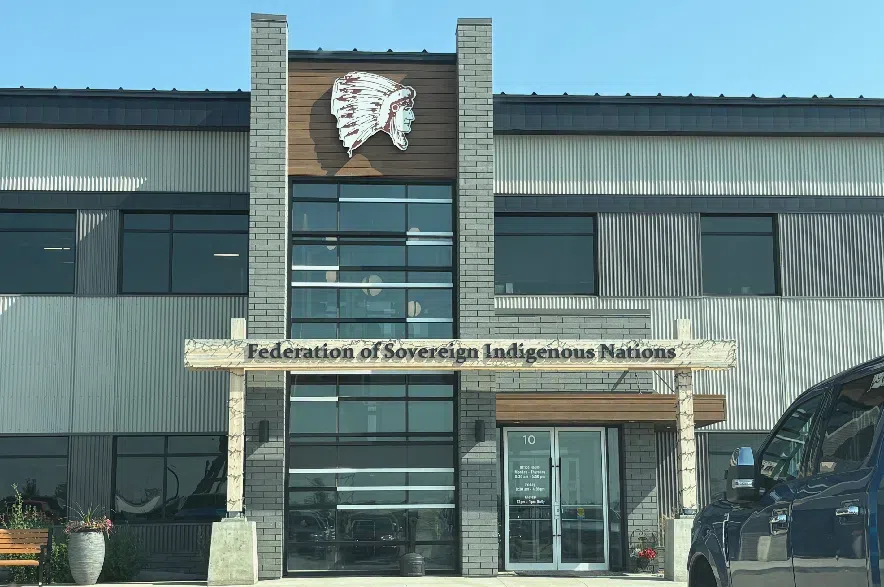The Federation of Sovereign Indigenous Nations (FSIN) has responded to an audit that identified millions of dollars of questionable spending.
The forensic audit concluded that more than $34 million in spending by the FSIN between April of 2019 and March of 2024 was “questionable,” unsupported or ineligible. The audit of the organization that represents 74 Saskatchewan First Nations was conducted by KPMG on behalf of Indigenous Services Canada.
Read more:
- Audit of Saskatchewan First Nations group questions millions of dollars in spending
- FSIN forensic audit released, transparency recommendations made
- ‘One of the biggest scandals in First Nations history’: Arcand
The audit found that $25 million of the $30 million the FSIN received in COVID-19 funding was spent in a “questionable” manner, and KPMG noted that it could not determine if any of the protective equipment purchased with the funding was actually distributed to the communities represented by the FSIN. It also identified more than $50,000 in “questionable” or “ineligible” travel expenditures, and $265,000 in travel spending that may have gone against the organization’s own policies.
The findings of the audit quickly drew the ire of some First Nations leaders in Saskatchewan, including Tribal Chief Mark Arcand, the head of the Saskatoon Tribal Council.
“This is probably one of the biggest scandals in First Nations history,” Arcand said at a news conference last week, noting that the FSIN’s leaders had been publicly silent since the results of the audit were made public.
The organization broke its silence on Wednesday, but said it has not yet had a chance to see the final audit report.
“FSIN had planned to provide a full and complete response upon receipt of the detailed report from KPMG, as it is difficult to respond to any allegation without specific details,” the FSIN said in a statement.
“However, (Indigenous Services Canada) has not yet responded to multiple requests for the full report — which we anticipate would provide the rationale for each specific finding.”
650 CKOM has reached out to Indigenous Services Canada to inquire whether any information on the results of the audit was withheld from the FSIN.
Left without the “full report,” the FSIN said it can only respond to the documents posted to the Indigenous Services Canada website, and it said much of the language used in the report was vague.
“KPMG’s summary contains language that is inconclusive such as ‘may be in contravention’, ‘appears’ and the term ‘questionable’ itself for which they do not provide a definition,” the FSIN said.
The organization said its staff and management spent “thousands of hours collectively to respond to the audit,” and it is confident that ISC “will conclude that all expenditures are eligible with the exception of minor administrative errors that have since been corrected” after it reviews the documentation the FSIN provided in response to a lengthy list of questions and data items.
The FSIN also prepared a fact sheet (which can be read in full below) responding to a number of the points raised in the audit, taking particular issue with the finding that COVID-19 funding was spent in a “questionable” manner.
“FSIN categorically rejects the suggestion that purchases under COVID lack documentation. Receipts and/or invoices were provided for every expenditure, and it is unclear which items KPMG is alleging are incomplete,” the organization said.
“FSIN will directly address any such details once the full report is received. To dismiss this work as ‘questionable’ is baseless and disregards the reality that FSIN’s efforts protected Elders, children, and families.”
The organization called the criticisms it has faced in the wake of the audit “unwarranted,” and said the entire matter first arose just ahead of the FSIN’s election last year, which saw Bobby Cameron elected to a fourth term as FSIN chief.
“The FSIN has faced unwarranted attacks in relation to the forensic audit that was publicly called for by certain individuals leading up to the 2024 election and reiterated in a press conference two days prior to the election where support for a particular candidate was announced,” the organization said.
“These attacks seem to be fueled by malicious intentions and have contributed to heightened racial tensions by perpetuating negative stereotypes about First Nations.”
–with files from The Canadian Press and 650 CKOM’s Mia Holowaychuk











